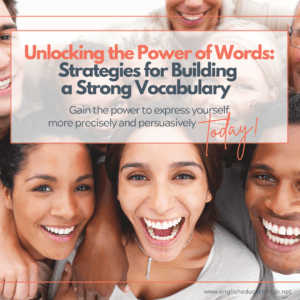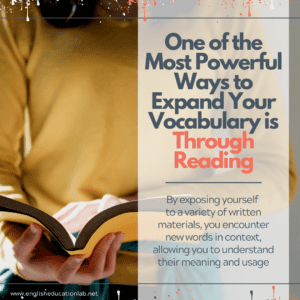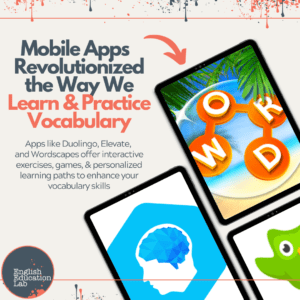
Unlocking the power of words: Strategies for building a strong vocabulary
Unlocking the power of words: Strategies for building a strong vocabulary
In today’s fast-paced and information-driven world, having a strong vocabulary is more important than ever. But how do you unlock the power of words and build a vocabulary that leaves a lasting impression? This blog post will explore effective strategies to help you expand your lexicon and communicate with confidence.
Whether you’re a student looking to improve your academic performance, a professional aiming to enhance your communication skills, or simply someone who enjoys the beauty of language, this post is for you! 
We’ll delve into practical techniques such as reading widely, using context clues, and incorporating new words into your daily conversations. You’ll discover the hidden potential of words and how they can shape your thoughts, impact your relationships, and even open doors to new opportunities. Words are the building blocks of communication, and by expanding your vocabulary, you gain the power to express yourself more precisely and persuasively. Join us on this journey to unlock the power of words and transform the way you communicate!
The benefits of having a rich vocabulary
So why do you even need a rich vocabulary you ask? Well, a strong vocabulary is not just about impressing others; it is an essential tool for effective communication. Words are the building blocks of language, and having a rich vocabulary allows you to express yourself more precisely and persuasively. When you have a wide range of words at your disposal, you can convey your ideas with clarity and nuance. This is particularly important in academic and professional settings, where clear communication is key to success.
Moreover, a strong vocabulary enhances your reading comprehension. When you encounter unfamiliar words while reading, a robust vocabulary enables you to understand their meaning from context, making the reading experience more enjoyable and rewarding. Additionally, a well-developed vocabulary expands your mental horizons, enabling you to grasp complex ideas and engage in meaningful discussions. The benefits of a rich vocabulary extend beyond effective communication; it enhances cognitive abilities, improves memory, and boosts creativity.
Unlocking the power of words is a lifelong journey, but with the right strategies and consistent practice, you can continually expand and reinforce your vocabulary. Embrace the techniques mentioned in this article, and make vocabulary development a regular part of your routine. As you unlock the hidden potential of words, you’ll experience the transformative power of language and open yourself up to new opportunities and possibilities.
Techniques for expanding your vocabulary
Expanding your vocabulary is an ongoing process that requires dedication and practice. Thankfully, there are several techniques you can employ to build and reinforce your lexicon. Let’s explore some of the most effective strategies:
Reading as a tool for vocabulary development
One of the most powerful ways to expand your vocabulary is through reading. By exposing yourself to a variety of written materials, you encounter new words in context, allowing you to understand their meaning and usage. Make a habit of reading widely, including books, newspapers, magazines, and online articles. Aim to challenge yourself by exploring different genres and topics. 
When you come across unfamiliar words while reading, resist the temptation to skip over them. Instead, use context clues to decipher their meaning. Look for clues in the surrounding sentences or use your knowledge of root words, prefixes, and suffixes to infer their meaning. If you’re unsure, consult a dictionary to ensure accurate comprehension. By actively engaging with unfamiliar words, you reinforce their meaning and increase your vocabulary.
Word games and puzzles to enhance vocabulary skills
Who said learning had to be boring? Word games and puzzles provide an entertaining and interactive way to improve your vocabulary. Crossword puzzles, word searches, anagrams, and Scrabble are just a few examples of games that can help you expand your lexicon. These activities challenge your brain to recall and recognize words, strengthening your vocabulary skills while having fun.
Additionally, online platforms offer a wide range of vocabulary-building games and quizzes. Websites and apps such as Vocabulary.com, Word Dynamo, and Merriam-Webster’s Word Games (our favorite!) provide interactive exercises that test your knowledge and introduce new words. Incorporating these games into your daily routine can make vocabulary development an enjoyable and engaging experience.
Using flashcards and mnemonic devices for memorization
Flashcards are a time-tested tool for vocabulary memorization. Create flashcards with a word on one side and its definition on the other. Review them regularly, testing your memory and understanding. As you progress, separate the flashcards into two stacks: one for words you know well and one for words that still require practice. Focus on the latter stack to reinforce your memory and expand your vocabulary. You can now even create digital flashcards- there’s really no excuse!
Mnemonic devices are another effective memorization technique. These are memory aids that help you remember information by associating it with something familiar or creating vivid mental images. For example, to remember the word “gregarious” meaning sociable or outgoing, you could imagine a group of people singing and dancing together in a joyful celebration. By connecting the word to a memorable image, you are more likely to recall its meaning when needed. 
Incorporating new words into your daily conversations and writing
To truly make new words a part of your vocabulary, it’s important to use them actively in your daily conversations and writing. Challenge yourself to incorporate at least one or two new words into your daily interactions. This could be as simple as using a newly learned word while speaking with friends or colleagues or incorporating it into your emails or written assignments.
Practicing the usage of new words reinforces your understanding and helps you internalize their meaning. It also encourages you to think more critically about word choice and expression. As you become more comfortable with using a diverse range of words, you’ll find that your communication becomes more engaging, persuasive, and memorable.
Online resources for vocabulary building
In the digital age, the internet provides a vast array of resources for vocabulary building. Online dictionaries, thesauri, and word reference websites are invaluable tools for expanding your lexicon. Websites like Dictionary.com, Thesaurus.com, and Merriam-Webster.com offer comprehensive definitions, synonyms, antonyms, and example sentences to help you understand and use words effectively.
In addition to traditional resources, online vocabulary-building platforms offer a wide range of exercises and lessons. Websites such as Vocabulary.com, Memrise, and Quizlet provide interactive quizzes, flashcards, and word lists tailored to different proficiency levels. These resources make vocabulary development accessible, engaging, and customizable to your specific needs.
Vocabulary-building apps and software
Mobile applications and software have revolutionized the way we learn and practice vocabulary. Vocabulary-building apps provide a convenient and portable way to expand your lexicon on the go. Apps like Duolingo, Elevate, and Wordscapes (another favorite!) offer interactive exercises, games, and personalized learning paths to enhance your vocabulary skills.
For more comprehensive vocabulary development, software programs such as Rosetta Stone, Babbel, and FluentU provide immersive language learning experiences. These programs utilize advanced technology and interactive content to enhance vocabulary acquisition and retention. With features like speech recognition and contextual learning, these tools offer a holistic approach to building a strong vocabulary.
Final thoughts
In conclusion, embracing the world of words is a journey well worth taking! As you explore the techniques outlined in this post, you’ll unlock the potential of language and hopefully find yourself communicating with newfound confidence. A robust vocabulary is not just a tool; it’s a key that opens doors to clearer expression, better understanding, and more engaging interactions. So, keep expanding your lexicon, one word at a time, and watch as your ability to convey thoughts and ideas with precision and flair soars to new heights. Happy word-hunting my friends, and may your linguistic adventures be as rewarding as they are enlightening!
Further Reading
ESL classes online – 5 top tips to make the most of your lessons
How to become fluent in English without spending a dime!
Five must-have English grammar books for language learners
Boost your English listening skills with these proven strategies
How to Improve Your Vocabulary: 7 Ways to Expand Your Vocabulary



